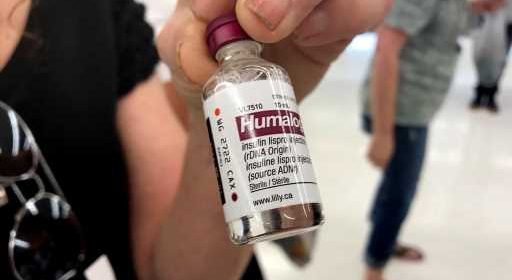Polis signs bills creating new insulin program, mandating free mental health check-ups

Coloradans are going to see a host of tweaks in their health care over the next two years, including a new program for people who can’t afford insulin and the option for a free mental health visit annually.
Those two bills were among dozens that Gov. Jared Polis signed this week, along with others limiting how medical debt can be collected and requiring insurers to look for discrimination in any algorithms they use.
The insulin bill, HB21-1307, will create a program limiting the cost of insulin to $50 a month for Colorado residents who aren’t covered by the price cap that passed in 2019, and also aren’t eligible for Medicare or Medicaid. The price cap only applies to people whose health insurance plans are regulated by the state.
Under the program, people who have less than seven days’ worth of insulin left and need an emergency supply can receive one month’s worth for $35, but can only do so once each year. Insulin manufacturers then either have to send pharmacies additional vials of insulin, or make up the difference between the price cap and the cost of the medication.
The insulin bill also clarified that the $100 cap on out-of-pocket costs should cover the total monthly cost of insulin, even if a person has multiple prescriptions. Some insurance companies had interpreted it as a $100 limit per prescription, meaning their customers paid two or three times as much as lawmakers intended.
The mental health bill, HB21-1068, would require large-group insurance plans to start covering a free annual mental wellness exam starting next year. Small-group plans and those sold on the individual marketplace would have until 2023 to comply.
Insurers would have to cover a behavioral health wellness check of up to 60 minutes, which could include screenings for mental health or substance use concerns; discussion of potential medications or lifestyle changes; and referrals for further treatment. When the patient is a child, it can also include consultation with a parent about behavioral health concerns.
The governor also signed the following bills related to health care:
- HB21-1198, which requires most health care facilities to screen their uninsured patients, to see if they could be eligible for Medicare, Medicaid or the Colorado Indigent Care Program. It also prohibits attempting to force a patient’s home into foreclosure over medical debt. The bill limits health care providers to collecting no more than 4% of a patient’s monthly income, for no more than 36 months, if they earn less than 2.5 times the federal poverty line, or about $32,200 for an individual.
- HB21-1300, which limits how much health care providers can collect by placing a lien on a settlement that an injured person receives. The charges can’t exceed what would be normal for treating that type of injury, and the provider can’t collect more from the injured person if the settlement doesn’t cover all medical bills.
- SB21-169, which requires insurers to test any algorithms or predictive models they use, to ensure they don’t produce results that discriminate based on race, color, national origin, religion, sex, sexual orientation or gender identity.
- HB21-1012, which instructs the board overseeing the prescription drug monitoring program to determine if it should include all prescriptions. Currently, the program only tracks controlled substances, such as opioids.
- HB21-1275, which allows pharmacists to get paid by Medicaid for administering injectable medications used to treat mental health conditions or addiction.
- HB21-1005, which creates a task force to study the idea of a health care reserve corps.
The governor had previously signed bills creating a standardized health insurance plan with lower monthly costs, known as the “Colorado option”; authorizing a state agency to coordinate behavioral health programs; and establishing a board to review prescription drug prices and possibly set limits.
Source: Read Full Article